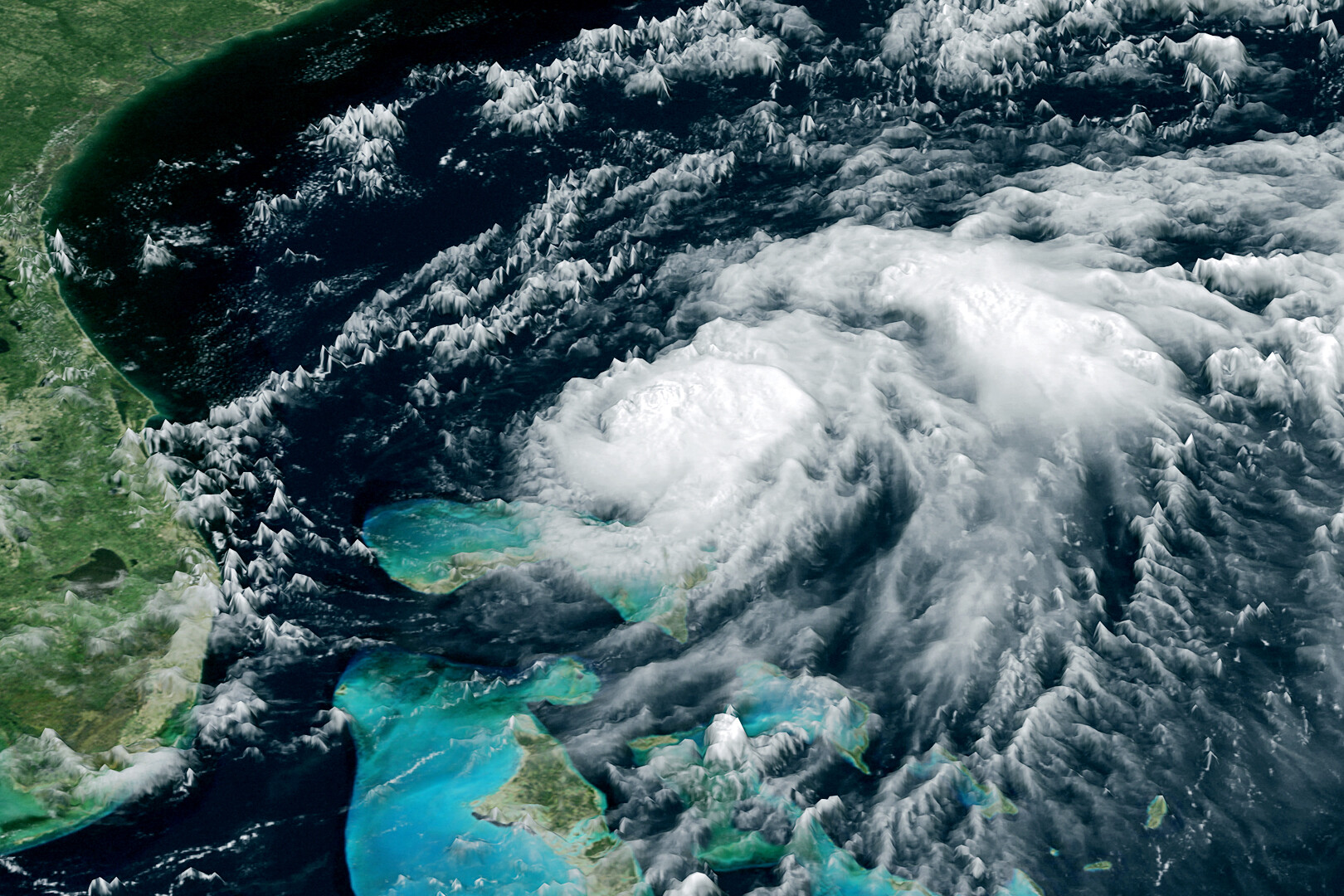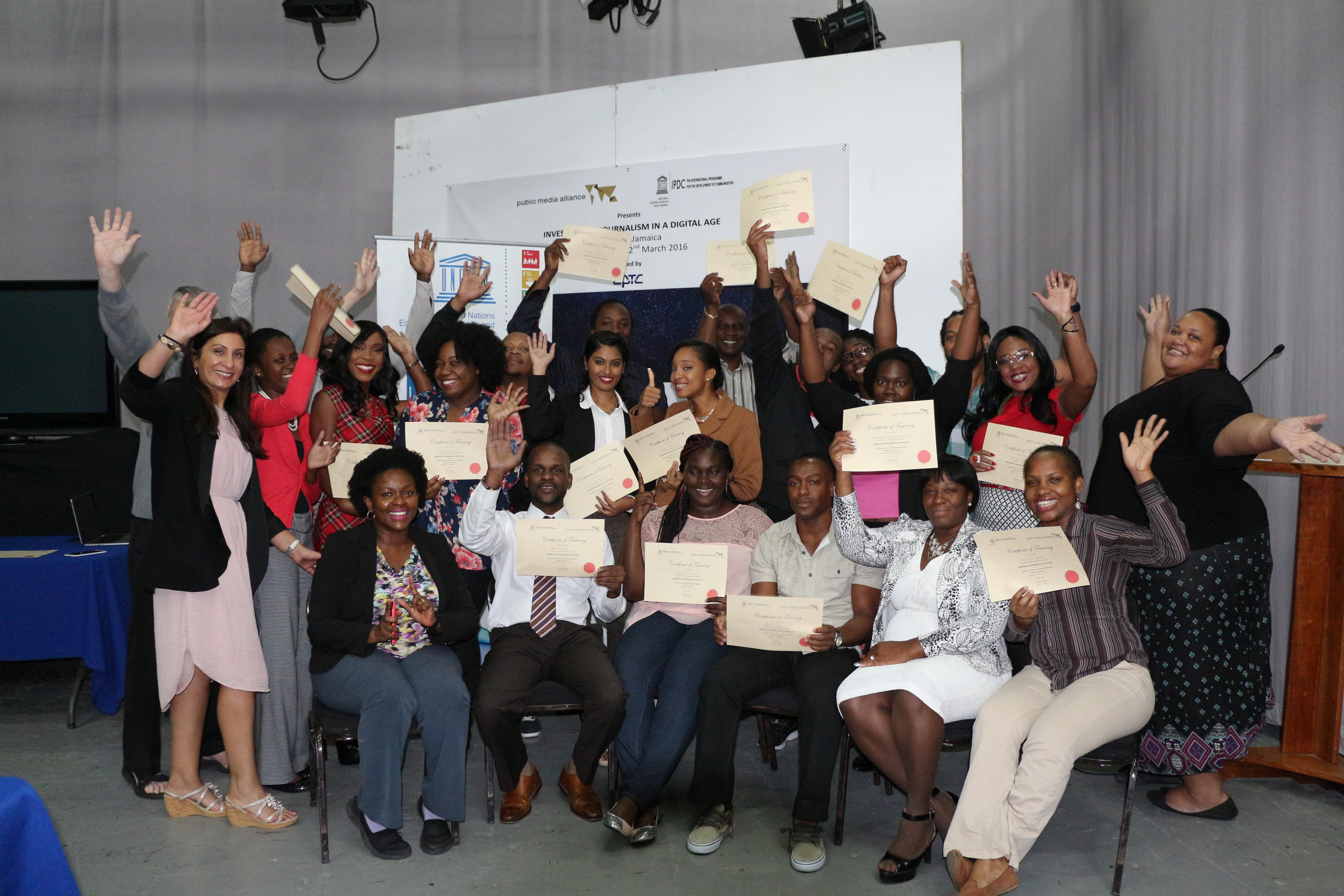Congratulations to participants of our recent social media workshop in the Caribbean, which will contribute to the development of social media guidelines for journalists across the region.
Love it or loathe it social media is here to stay. If it is effectively integrated into a broadcaster’s overall media strategy, it can bring substantial benefits such as increases audience reach and providing additional revenue streams. Yet, when mistakes occur it can also cost a company in terms of legal fees and reputation.
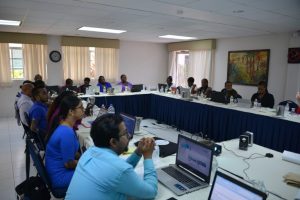
For many years our organisation, in partnership with UNESCO, has published Editorial Guidelines for broadcasters. Many broadcast organisations have now transitioned to become multiplatform media houses but the use of social media platforms has often developed on an ‘ad hoc’ basis. For this reason, the PMA, funded by UNESCO’s Caribbean Cluster Office and supported by the Caribbean Broadcasting Union (CBU), RJR Gleaner Group, and the Grace Wyndham Goldie Trust, have decided to develop and publish Social Media Guidelines for media professionals across the Caribbean.
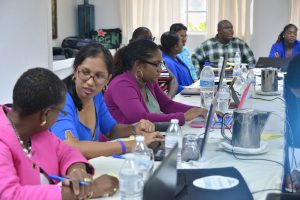
The first stage of the process began last week with a workshop in Barbados for 18 Caribbean journalists who specialise in online media output. International trainer, Paul Myers, worked with the group teaching them many detailed aspects of how best to use social media as an effective journalistic tool. Using a specially developed interactive course Paul highlighted how specific tools are now available to investigate and verify stories against a rise in fake news and populism.
The group also had guest presentations from Greg Marshall, a digital marketing consultant, and Jeff Cumberbatch LL.B. (UWI); Leg Ed Cert; Attorney-at-Law, who took the group through some of the critical legal considerations of media law in the region.
In the final stages of the workshop the group devised a framework for the guidelines that covered both ethical and legal aspects of working with social media. The guidelines will now be drafted and circulated for comment before receiving further consideration and a soft launch at the CBU’s Annual General Meeting in the Bahamas in August.
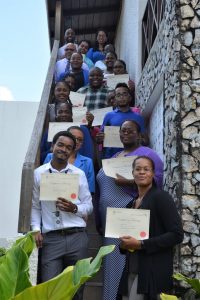
The resounding output of the workshop was that social media can no longer be regarded as an ‘add on’. It’s an essential and affordable way of extending public engagement and reaching audiences. If established media houses are to survive and thrive they must embrace social media and ensure it becomes an integral part of their strategy. Social media platforms are often regarded as ‘the wild frontier’ of media where rules and standards need not apply. For journalists in the Caribbean it’s clear that they feel the best way to build public trust is to ensure that social media journalists adopt the very highest standards of journalism.
Congratulations to all those who attended the workshop and participated in the development this unique set of social media guidelines.
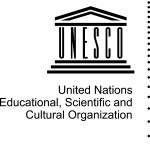
Header image: Congratulations to all participants! Credits: Shobha Myers
Related Posts
21st June 2017
Essential role of social media in emergency coverage
Emergency coverage by CCN TV6 broadcast…
2nd June 2017
Press Release: UNESCO & PMA Social Media Guidelines Workshop & Meeting
The Public Media Alliance will run a…
11th May 2017
Call for Application: Workshop & meeting to develop social media guidelines for Caribbean journalists
We are pleased to announce our upcoming…
